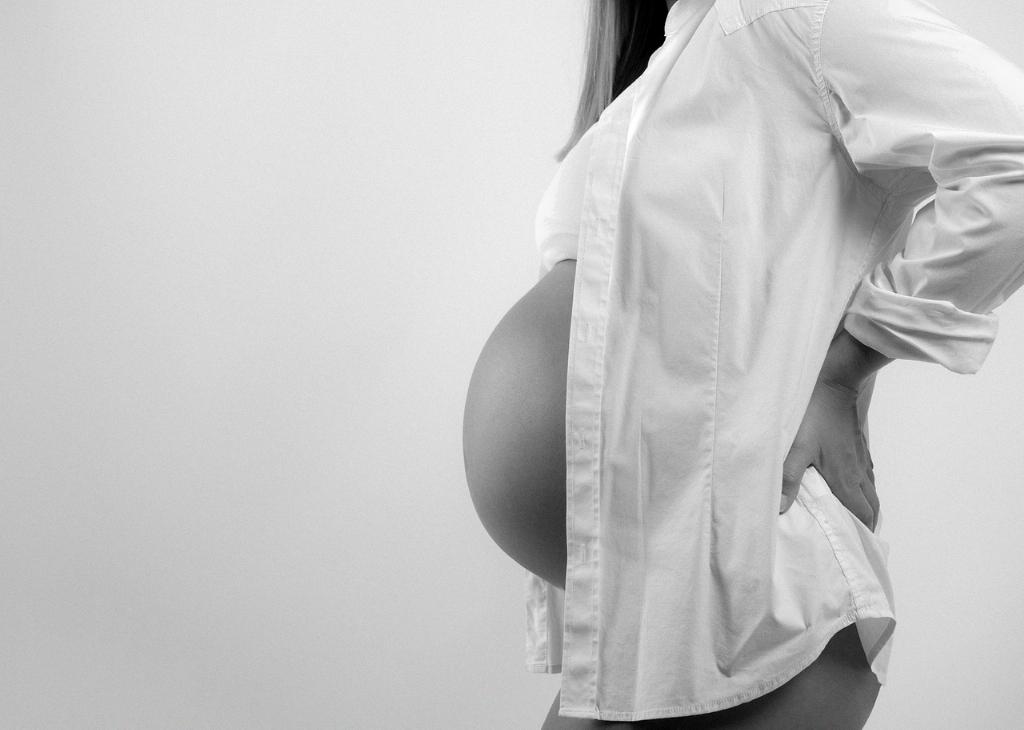At 6 weeks pregnant, you may be wondering how to know if your baby is developing normally. One reassuring sign is the presence of a bump where the heart is forming and another bulge indicating where the head will be. These early physical markers, though not externally visible yet, are significant indications of your baby’s growth.
Fetal Heartbeat Detection
While it’s not common to hear the heartbeat at 6 weeks with a standard ultrasound, a vaginal ultrasound may detect the faint but reassuring sound of your baby’s heartbeat. This early detection is more likely in cases involving fertility treatments like IVF, as monitoring is often more intensive in such situations.
Embryonic Development
At this stage, the embryo is covered by a delicate layer of transparent skin, which protects and nurtures the developing structures within. Despite being just the size of a small pea, the intricate process of organ formation and growth is well underway, setting the foundation for your baby’s future development.
Early Pregnancy Care
Ensuring your baby’s well-being at 6 weeks involves taking care of yourself too. Proper nutrition, sufficient rest, and regular prenatal check-ups are vital for monitoring the progress of your pregnancy. Your healthcare provider will guide you on lifestyle adjustments and necessary precautions to support a healthy gestation.
Importance of Prenatal Visits
Attending prenatal appointments is crucial for tracking your baby’s growth and detecting any potential issues early on. These visits allow healthcare professionals to assess your progress, provide necessary screenings, and address any concerns you may have about your pregnancy.
Emotional Well-Being
Monitoring your emotional well-being is also essential during pregnancy. Feeling anxious or stressed is normal, but reaching out for support from loved ones or a counselor can help ease any concerns you may have about your baby’s health and well-being.
Healthy Lifestyle Choices
Maintaining a healthy lifestyle is key to supporting your baby’s development. Eating a balanced diet rich in nutrients, staying hydrated, and engaging in light physical activity can contribute to a healthy pregnancy. Avoiding harmful substances like alcohol and tobacco is also crucial for your baby’s well-being.
Maternal Symptoms and Comfort
Experiencing symptoms like morning sickness, fatigue, or mood swings is common during the early stages of pregnancy. While these discomforts can be challenging, they are often signs of a healthy pregnancy as your body adjusts to the changes occurring as your baby grows.
Seeking Guidance
If you have any concerns about your baby’s well-being at 6 weeks, don’t hesitate to contact your healthcare provider. They can offer reassurance, perform necessary tests, and address any uncertainties you may have about your pregnancy. Open communication is key to ensuring the best outcome for you and your baby.
Future Growth and Development
At 6 weeks, your baby’s rapid growth and development will continue in the coming weeks and months. Each stage of pregnancy brings new milestones and changes, and staying informed and connected with your healthcare team is essential for monitoring your baby’s progress and well-being.
Support System
Building a strong support system of family, friends, and healthcare professionals can help alleviate any anxieties you may have about your baby’s health. Remember that you are not alone on this journey, and reaching out for help and guidance is a sign of strength and commitment to your baby’s well-being.
Final Thoughts
As you navigate the early stages of pregnancy and wonder about your baby’s well-being at 6 weeks, trust in the process of growth and development that is unfolding within you. Each milestone, each heartbeat, and each sign of progress is a testament to the miracle of life taking shape. Stay connected, stay informed, and embrace the journey ahead with hope and confidence.

